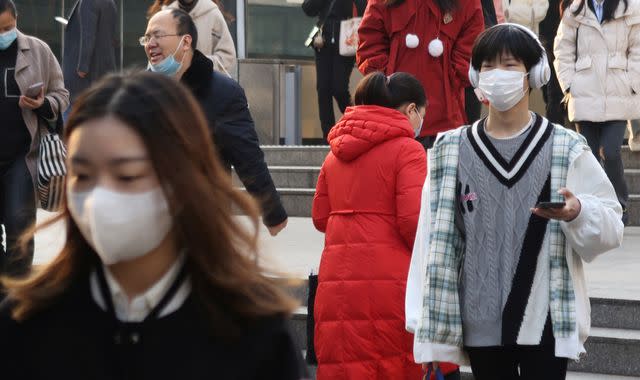Chinese COVID data from animal market gives clues on origins of virus, scientists say

Data from the early stages of the COVID-19 pandemic has provided crucial information on the outbreak's origins, according to researchers.
The virus was first identified in Wuhan in December 2019, with the Huanan live animal market widely suspected to be the source, before it rapidly spread around the world and killed nearly seven million people.
This week, scientists published a pre-print report based on their interpretation of the data.
It came after previous leaks of the report in the media and a meeting with the World Health Organisation (WHO), which urged China to release more information.
However, the data from the Chinese Center for Disease Control and Prevention (CDC) is no longer available on the GISAID database where it was discovered by the scientists.
Scientists said it included new sequences of the virus and additional genomic data based on samples taken from a live animal market in Wuhan in 2020.
The sequences showed that raccoon dogs and other animals susceptible to COVID-19 were present in the market and may have been infected - providing the experts with a new clue in the chain of transmission that eventually reached humans.
"This adds to the body of evidence identifying the Huanan market as the spillover location of Sars-CoV-2 and the epicentre of the COVID-19 pandemic," the scientists said in the report.
Read more:
Raccoon dogs at Wuhan market linked to COVID origins in new study
COVID-19 will be over as public health emergency this year, WHO says
The authors who accessed the data included the University of Arizona's Michael Worobey, Kristian Andersen of Scripps Research in La Jolla, California, as well as Florence Débarre at the Sorbonne University in Paris.
The report also added more detail about other animals present at the Wuhan market, and showed that some of the COVID-positive environmental samples contained more animal than human genetic material, consistent with the animals being infected.
WHO officials said last week the leaked information was not conclusive but did, however, represent a new lead into the investigation into the virus's origins. They also said it should have been shared right away.
The Chinese CDC was not immediately available for comment.

 Yahoo News
Yahoo News 
